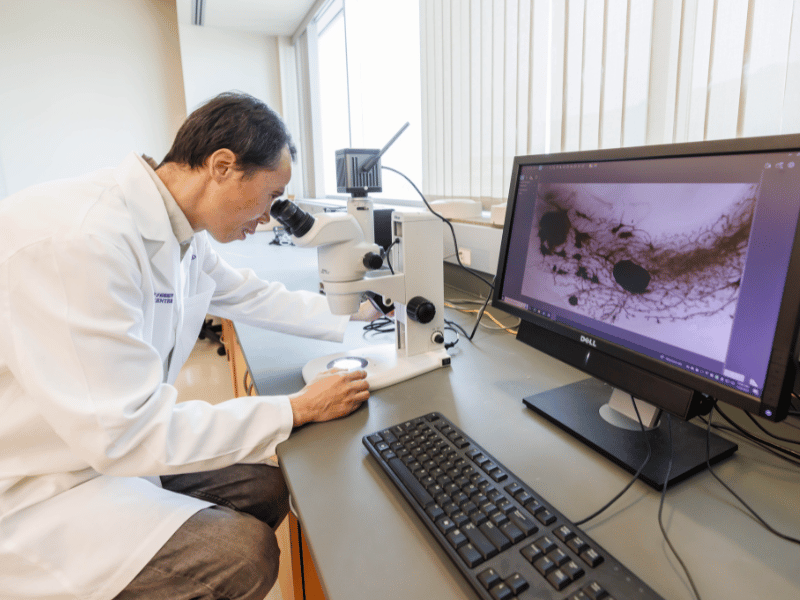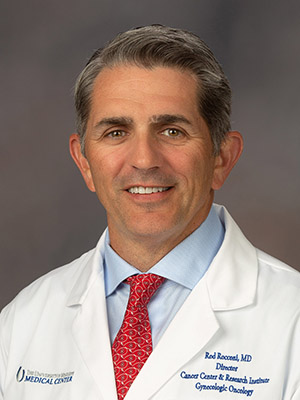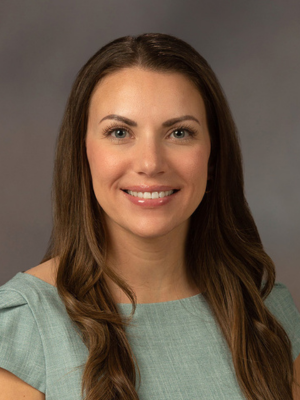UMMC Cancer Center and Research Institute to seek national designation

Mississippi is notorious for having among the worst cancer survival rates in the country. In fact, the Centers for Disease Control and Prevention estimates cancer deaths in Mississippi to be 20% higher than the national average.
Mississippi also joins Louisiana and Arkansas as southeastern states that don’t have a National Cancer Institute-designated center. Currently, there are 72 NCI cancer centers across the nation.

“We have terrible cancer outcomes in Mississippi, and we have a lot of need. I would wager that every single person, in some way or another, has had their own lives, family members, neighbors, loved ones impacted by cancer,” said Dr. LouAnn Woodward, vice chancellor for health affairs and dean of the School of Medicine. “This is something that has been on our minds for a while.”
Woodward tasked Dr. Rodney Rocconi, director of the Cancer Center and Research Institute and Ergon Chair for Cancer Research, with enhancing CCRI’s mission of combating cancer through UMMC’s three-part mission of clinical care, research and education. His first order of business: to begin the journey towards National Cancer Institute designation.

“All of the requirements and steps of achieving NCI designation demonstrate that you are building a research-driven cancer center that has the singular focus on improving cancer health for people in your catchment area.” said Rocconi.
The National Cancer Institute leads the country’s research efforts to enhance cancer detection, prevention and diagnosis. As a federal agency, NCI receives federal funding, which supports cooperative agreements to facilitate research conducted at hospitals, cancer centers, medical schools and universities across the nation. Currently, the agency supports more than 5,000 grantees and all phases of clinical trials among 2,500 trial sites nationwide.
In Mississippi, the potential discoveries and advancements in cancer treatments would help patients live healthier and longer lives. Research shows the survival rate for patients who receive care at an NCI-designated cancer center is 25% higher compared to those treated at non-NCI cancer centers.

“Mississippi has some of the worst cancer mortality rates in the country. It’s critically important that we improve these rates of survival for not only those who receive a cancer diagnosis, but also for everyone who loves and cares for them,” said Dr. Leslie Musshafen, associate director of administration for CCRI.
“For most Mississippians, it’s not feasible to drive out of state to seek care at an NCI-designated cancer center — nor should they have to make that journey. As the only academic medical center in our state, it’s incumbent upon us to achieve NCI designation and to elevate the research we conduct and the care we provide to among the most cutting edge in the country.”
To prepare for the submission process within the next five years, CCRI must meet rigorous eligibility requirements, one of which is to obtain $10 million in NIH cancer research funding. To achieve this task, the institute will need to recruit additional research faculty members who will help to attract grants.
“Our plan is to recruit 20 basic science and 10 population health researchers over the next five years,” said Musshafen.
As another designation requirement, CCRI will also need to develop three separate cancer research programs of excellence. Rocconi believes CCRI has vital programs and experts already in place to complete this requirement. One important piece is the UMMC John D. Bower School of Population Health, which drives outreach and community engagement efforts into our communities.
“One of the research programs of excellence is our drug discovery and development group. We have uniquely talented researchers that have spent their careers developing different ways to deliver cancer treatment to patients, as well as creating novel tests that can predict which cancer therapy would work best for individual patients,” said Rocconi.
“Joining this program with the nationally recognized National Center for Natural Products at the University of Mississippi Department of Pharmacology creates a wonderful opportunity to develop a leading-edge cancer therapy pipeline right here in our state, specifically for the cancer patients of Mississippi.”
Mississippi has significant health disparities that negatively impact health outcomes for minorities and residents in poverty or rural areas, which pose many challenges to achieving the highest quality cancer care. These challenges also provide tremendous opportunities that would allow CCRI to be the change that moves cancer care forward.
“Our goal is to be purposeful in creating programs that are durable and lasting,” said Rocconi. “A large part of our charge is to enhance our early phase clinical trials portfolio, which will provide opportunities for people in the state to take part in trials that they currently would have to travel out of state to receive.”
Rocconi and Musshafen are also focusing on factors outside of research that will improve cancer care, such as cultivating an environment centering on health equity.
“We’re focusing on enhancing clinical care through a holistic approach, keeping in mind all factors that impact an individual’s health, from physical activity and nutrition, to social support and financial resources,” said Musshafen.
The UMMC Cancer Center and Research Institute is also developing robust patient education and support programs to address topics that are critically important to cancer survivors and their caregivers such as how and when to share a cancer diagnosis, coping with changes in physical appearance and cultivating mindfulness.
“Our goal is to make these avenues of support available to any cancer survivor in the state, meeting people where they are, regardless of where they are seeking care,” Musshafen said.
Plans are underway for a comprehensive facility that will combine and deliver all facets of cancer care under one roof, keeping patients at home and in Mississippi.
“As another piece to this multifaceted approach to achieve NCI designation, we are also planning to build a new comprehensive cancer center, where we have cancer clinical services and trials, cancer research and educational activities all within one facility,” said Rocconi. “It’s purposeful to create an environment of collaboration amongst research and clinical faculty, which brings everyone together, creating a synergy toward achieving NCI designation.”
Ultimately, Woodward believes, UMMC is uniquely positioned and ready for the challenge.
“It feels like the stars have lined up and the time is really right. It’s something we as an organization will put a lot of focus, energy and horsepower behind,” said Woodward. “I feel like, as the only academic medical center in the state, it’s our responsibility and obligation to do this work.”


